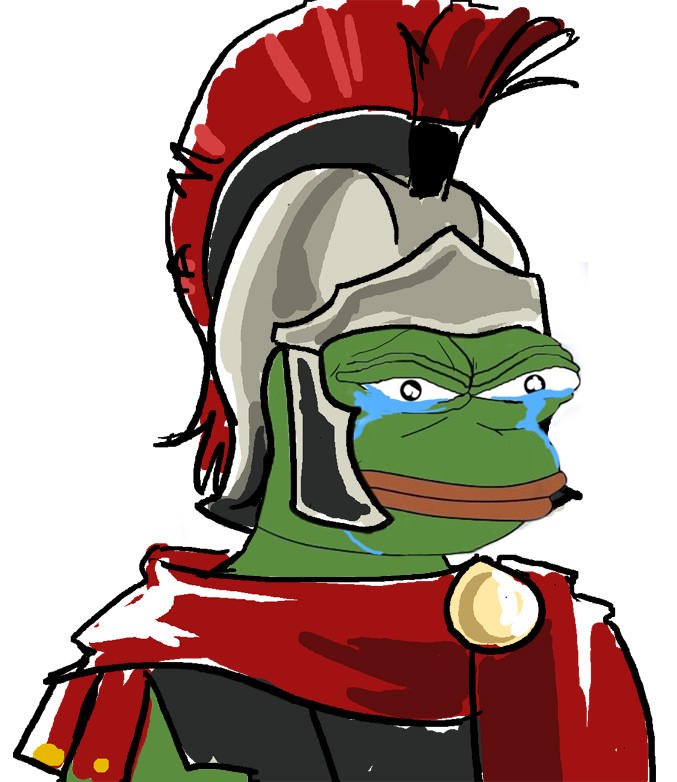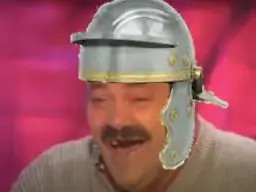But other than war and the roads, what did the Romans ever do for us
They gave us the aquaduct
It’s the road for water… for war.
And they didn’t understand how it worked either. They just took what the Greeks did and copied it, but bigger.
What.
Then there is Roman engineering: the Roman roads, aqueducts, the Colosseum. Warfare, alas, has always been beneficial to engineering. Yet there are unmistakeable trends in the engineering of the gangster states. In a healthy society, engineering design gets smarter and smarter; in gangster states, it gets bigger and bigger. In World War II, the democracies produced radar and split the atom; German basic research was far behind in these fields and devoted its efforts to projects like lenses so big they could burn Britain, and bells so big that their sound would be lethal. (The lenses never got off the drawing board, and the bells, by the end of the war, would kill mice in a bath tub.) Roman engineering, too, was void of all subtlety. Roman roads ran absolutely straight; when they came to a mountain, they ran over the top of the mountain as pigheadedly as one of Stalin’s frontal assaults. Greek soldiers used to adapt their camps to the terrain; but the Roman army, at the end of a days’ march, would invariably set up exactly the same camp, no matter whether in the Alps or in Egypt. If the terrain did not correspond to the one and only model decreed by the military bureaucracy, so much the worse for the terrain; it was dug up until it fitted into the Roman Empire. The Roman aqueducts were bigger than those that had been used centuries earlier in the ancient world; but they were administered with extremely poor knowledge of hydraulics. Long after Heron of Alexandria (1st Century A.D.) had designed water clocks, water turbines and two-cylinder water pumps, and had written works on these subjects, the Romans were still describing the performance of their aqueducts in terms of the quinaria, a measure of the cross-section of the flow, as if the volume of the flow did not also depend on its velocity. The same unit was used in charging users of large pipes tapping the aqueduct; the Roman engineers failed to realize that doubling the cross-section would more than double the flow of water. Heron could never have blundered like this.
- Petr Beckmann, A History of π
Lord. Where to begin?
Roman engineering, too, was void of all subtlety. Roman roads ran absolutely straight; when they came to a mountain, they ran over the top of the mountain as pigheadedly as one of Stalin’s frontal assaults.
… yes, because roads were:
A. Meant to get troops from point A to point B in the shortest possible time
and
B. Regulated in such a way as to afford greater size when curving, for reasons of safety and traffic density, and thus necessitating more materials, making straight roads preferred.
Greek soldiers used to adapt their camps to the terrain; but the Roman army, at the end of a days’ march, would invariably set up exactly the same camp, no matter whether in the Alps or in Egypt. If the terrain did not correspond to the one and only model decreed by the military bureaucracy, so much the worse for the terrain; it was dug up until it fitted into the Roman Empire.
Holy fucking shit. Is this guy really implying that Greek military camps were better laid out for following the terrain and saying that the standardized castra was ‘decreed by the military bureaucracy’ regardless of terrain?
The Roman aqueducts were bigger than those that had been used centuries earlier in the ancient world; but they were administered with extremely poor knowledge of hydraulics. Long after Heron of Alexandria (1st Century A.D.) had designed water clocks, water turbines and two-cylinder water pumps, and had written works on these subjects
Is it… is it unclear that Hero of Alexandria, taking a 1st century AD date for his life (not universally accepted, but one I agree with), being in Alexandria, was literally living in the Roman Empire?
the Romans were still describing the performance of their aqueducts in terms of the quinaria, a measure of the cross-section of the flow, as if the volume of the flow did not also depend on its velocity. The same unit was used in charging users of large pipes tapping the aqueduct; the Roman engineers failed to realize that doubling the cross-section would more than double the flow of water. Heron could never have blundered like this.
Holy shit, how does one write about this without ever having read De Aqueductu? Frontinius clearly writes with an understanding that velocity adjusts the volume of the flow. They (and ‘they’ includes the Greeks) just had no reliable mathematical models or tools to measure it until the 19th fucking century.
To be fair, I think that the author had a particular bitterness towards Rome for their killing of Archimedes. So, might not be the most unbiased - and looking into him further, he clearly had other questionable leanings.
Not to mention, the Greeks weren’t know for being particularly egalitarian or peace-loving either. They were big on pretty and graceful things… to show off their tremendous slave wealth. I’d guess that the main reason we even talk about them, instead of any of the other ancient civilisations, is that the “gangster” Romans simped for them enough to preserve a decent amount of their literature into the middle ages, which then found it’s way to the present.
Also, Roman roads were frequently straight, but not always. This Beckmann guy seems to think they would just send them straight up over one of the snow-capped peaks of the alps. They would allow some really steep grades, sure, but not unlimited grade, either in intensity or cumulative extent.
Okay, other than war, roads, and the aquaduct what did they ever give us?
A…and the sanitation.
Tfw they later use your roads to fuck you up even quicker

Is this the ancient predecessor of “But Hitler built the Autobahn”?
Sort of. I’d take the Romans over Hitler any day, though, and the warlords they replaced were presumably just as shitty, but without the roads.
Ergo, I meme for them.
Sadly those roads are likely why Christianity managed to spread so far.




